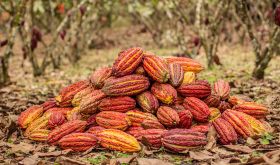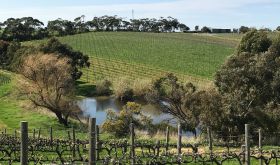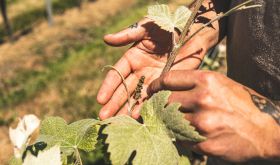Sorry if this is less than crystal clear but I've still got eight 1989 red bordeaux sloshing round my system from last night's annual first growth dinner. (No complaints, please. Someone's got to look at how these blessed bottles are coming on 10 years after the harvest, so Michael Broadbent of Christie's Wine Department and my eminent colleague and Bordeaux expert Edmund Penning-Rowsell and I do it every year – all right?)
Last night seven of us compared all eight of these super-ripe beauties. There wasn't that much left in the decanters by the end, so we must have consumed a fair bit of alcohol. My head still feels a bit fuzzy, and I reckon it's because I forgot to take my milk thistle.
You don't know this herbal miracle? If I tell you that two weeks ago I took a couple of capsules of milk thistle on the way to a tasting of 272 vintage ports and felt fine afterwards, would you be interested?
I thought so... Maybe, before going into the pharmacology, I should make it clear that I didn't actually taste all 272 of the ports from 1900 to the present day that were on offer at Oporto's luscious celebration of a century of vintage port. Usually I start to feel a bit headachy just smelling this stuff – after all, it's been locked up in a bottle with all its youthful impurities. But, thanks to milk thistle, I tasted more than 50 vintage ports and felt absolutely fine afterwards – walked round the town in the blazing sunshine, went out to dinner that night with a keen appetite and a decent thirst, all that sort of thing. Well, I had a little sleep in between, but I felt really clear-headed and not at all what Edmund Penning-Rowsell calls 'jaded'.
Now, this milk thistle stuff. It's a herbal dietary supplement that is supposed to make the liver process toxins more efficiently, and has certainly worked for me over the last few years. Based on the milk thistle plant, Silybum marianum, its particular mix of flavonoids is known as Silymarin and most capsules or pills, usually made in Germany but sold around the world in chemists and health food stores, contain about 60mg of what is thought to be the most active ingredient, silybin.
The small print on most packages urges you to take a dose up to three times a day every day. I don't like taking anything regularly, however 'natural', and I also have a possibly superstitious belief that medicaments are likely to work better if your body isn't used to them. So I reserve this magic compound for when I suspect I'll really need it, ie, just before dinner with one of my most generous friends, or a serious tasting marathon (I know we're meant to spit it all out, but alcohol as vapour and those little bits that dribble down still have an effect, I can assure you). Usually I take just one pill, but I thought the vintage port tasting called for two.
I checked all this out with Simon Mills who has been a practising medical herbalist for 25 years and is now Director of the Centre for Complementary Health Studies at the University of Exeter (a suitably rural location for a herbalist – perhaps he goes picking plants on Dartmoor).
He confirmed that milk thistle has certainly proved it can reduce the effects of various liver poisons (especially toadstools) on experimental animals but, wearing his rigorous scientist hat, added, 'there are some less firm data on human studies and alcohol'.
In fact, he said, 'those of us in the know think milk thistle is a johnny-come-lately. Since Adam (or perhaps Cain) started drinking fermented broth everyone has known that the guaranteed prophylactic for the effects of alcohol are the bitters.' What he wants us all to take instead of milk thistle are things like wormwood, the strongest of coffees, hops, gentian root, chicory root, dandelion root, angostura, centaury and cinchona bark. The general rule seems to be if it tastes quite disgustingly bitter, it will do the trick. 'A strong hit with a bitter just before a meal/tasting will prime up the digestive apparatus (hence "aperitif") and after a meal will salvage it (hence "digestif")'.
I haven't tried this yet as my general instinct is to avoid gustatory pain. But my new herbalist friend assures me that Underberg bitters are extremely effective (it seems strange to take something containing alcohol to counter its effects, but he says you just need a sip to get the system going). Presumably Fernet Branca and angostura do the same thing. If so, it certainly explains the number of pink gins a certain subsection of society seems able to absorb.
The most important thing about all this self-medication, however, is that while it makes you feel so much better, and your head feel so much clearer the next morning, there is absolutely no guarantee that it is saving you from any of the medically harmful effects of alcohol – and it certainly shouldn't encourage anyone to drive or do anything else they would normally avoid after alcoholic excess.
Obviously, the most sensible way to live is never to drink too much in the first place. But that's difficult for us professionals, and it's getting more and more difficult for any wine drinker as wines get stronger virtually everywhere. Fungicides mean that grapes can be picked later and later (feel that physiological ripeness, baby). Yeasts have become markedly more powerful over the last 10 years, boosting alcohol levels at the end of fermentation. And now we also have all sorts of late harvested old-vine grapes such as ancient Zinfandel, Shiraz and Grenache whose wines can end up at sherry strength. If I were a farmer, I'd be planting milk thistle, not vines.












